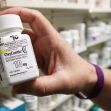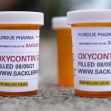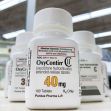The U.S. Supreme Court on Thursday blocked a bankruptcy settlement involving OxyContin maker Purdue Pharma, which would have shielded the wealthy Sackler family owners from lawsuits related to their role in the nation’s opioid epidemic. The 5-4 decision reverses a lower court ruling that had upheld the plan, which included the Sacklers contributing up to $6 billion to settle thousands of lawsuits accusing the company of misleading marketing practices.
Conservative Justice Neil Gorsuch, joined by fellow conservative Justices Clarence Thomas, Samuel Alito, Amy Coney Barrett, and liberal Justice Ketanji Brown Jackson, authored the ruling. Gorsuch emphasized that the Sacklers had not filed for bankruptcy and had not committed all their assets for distribution to creditors, yet sought judicial immunity from lawsuits brought by opioid victims.
"The Sacklers have not filed for bankruptcy and have not placed virtually all their assets on the table for distribution to creditors, yet they seek what essentially amounts to a discharge," Gorsuch wrote. "They hope to win a judicial order releasing pending claims against them brought by opioid victims. They seek an injunction 'permanently and forever' foreclosing similar suits in the future. And they seek all this without the consent of those affected."
Justice Brett Kavanaugh, in a dissent joined by Chief Justice John Roberts and liberal Justices Sonia Sotomayor and Elena Kagan, opposed the decision.
Purdue Pharma filed for Chapter 11 bankruptcy in 2019 to manage its debts, mainly stemming from thousands of lawsuits alleging that OxyContin contributed significantly to the opioid crisis, which has resulted in over 500,000 U.S. overdose deaths in two decades. The central legal issue was whether U.S. bankruptcy law allows for Purdue’s restructuring to include legal protections for non-bankrupt Sackler family members.
These "non-debtor releases" originated in asbestos litigation but have since been used by companies as leverage in settlements. The proposed Purdue settlement, approved by a bankruptcy judge in 2021, was expected to provide $10 billion in value to creditors, including state and local governments, individual addiction victims, hospitals, and others.
The Biden administration, along with eight states, challenged the settlement. Though all states later dropped their opposition after the Sacklers agreed to increase their contribution, the U.S. Trustee and some individual plaintiffs continued to oppose the deal.
State attorneys general praised the Supreme Court ruling. "Purdue and the Sacklers must pay so we can save lives and help people live free of addiction," said North Carolina Attorney General Josh Stein. "If they won't pay up, I'll see them in court."
Conversely, a group of over 60,000 individuals with personal injury claims against Purdue supported the settlement, including the legal immunity for the Sacklers. In May 2023, the 2nd U.S. Circuit Court of Appeals upheld the settlement, arguing that federal bankruptcy law permits legal protections for non-bankrupt parties in extraordinary circumstances.
The Supreme Court’s decision halts Purdue's bankruptcy proceedings concerning the settlement and opens the door for further legal battles. During arguments, the Justice Department highlighted that Sackler family members had withdrawn billions from Purdue before agreeing to contribute to the opioid settlement. They argued that the deal allowed the Sacklers to dictate their financial contribution.
Purdue has accused the U.S. Trustee of delaying billions of dollars meant for victim compensation, opioid crisis abatement, and overdose rescue medicines. The Sacklers have denied wrongdoing but acknowledged OxyContin's unexpected role in the opioid crisis, expressing that the bankruptcy settlement was intended to provide substantial resources for affected communities.






